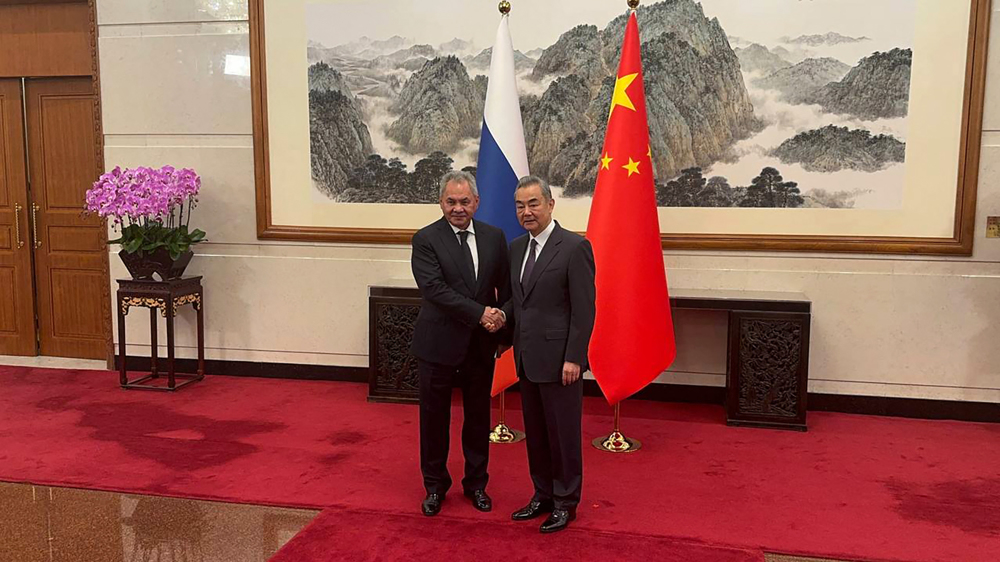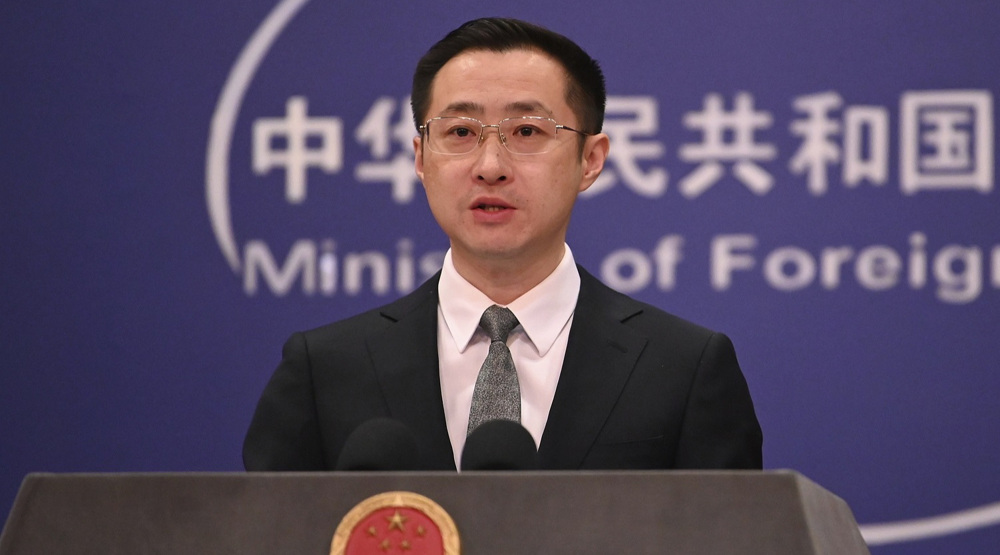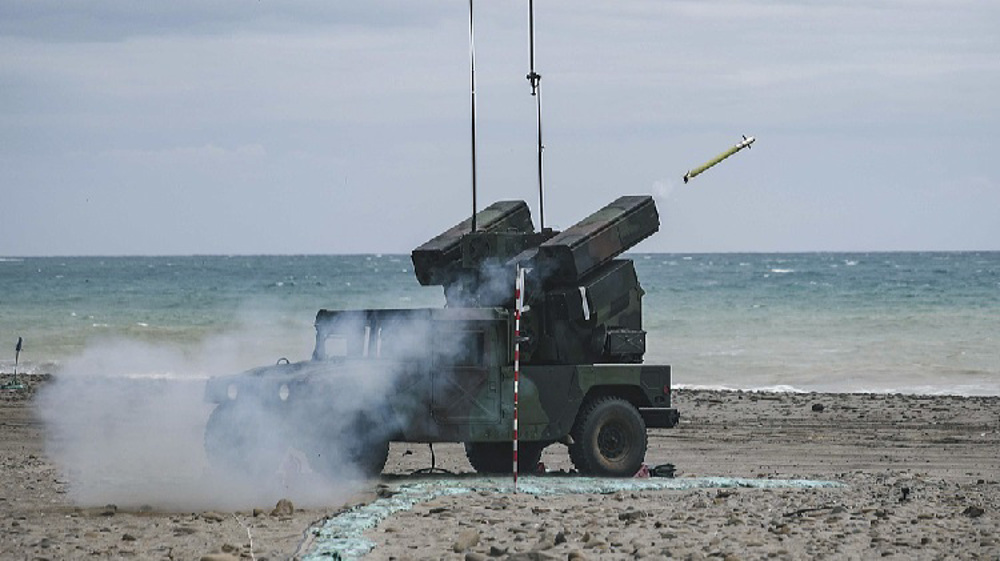Defiant Taiwan president unveils F-16 hub amid tensions with China
Taiwan President Tsai Ing-wen has unveiled a US-backed maintenance hub for upgraded F-16 fighters, saying she will not be “bowing and cringing” to China over the self-ruled island’s “sovereignty.”
Speaking at a ceremony to unveil Taiwan’s first maintenance center for F-16s in the central city of Taichung, President Tsai said that the hub marks a milestone in her years-long drive to build up the island’s defense industry.
“It takes solid defense capability, not bowing and cringing, to defend the sovereignty of the Republic of China and maintain regional peace and stability,” she said, using Taiwan’s formal name.
“The time needed for jet maintenance will be greatly shortened and availability will be boosted significantly, ensuring the Air Force’s combat power at the front line,” she added.
Taiwan’s Aerospace Industrial Development Corp (AIDC) said the hub would service jets for the island’s air force and that the company plans to expand it as a maintenance hub for F-16s in the region.
China has sovereignty over Taiwan; and under the “One China” policy, almost all world countries — including the United States — recognize that sovereignty.
Although Washington has no formal relations with Taipei, it is the island’s largest weapons supplier and an avid backer of Taiwan’s secessionist president.
China firmly opposes any official exchanges between the United States and Taiwan.
The Tsai government, however, signed a 62-billion-dollar deal earlier this month to purchase F-16 fighter jets from the US.
Under the deal, Washington agreed to sell 90 F-16 fighter jets, manufactured by American aircraft manufacturer Lockheed Martin, to Taiwan over a span of about 10 years.
China has repeatedly warned Washington against ties with Taiwan.
Relations between the two world powers have hit the lowest level in decades under President Donald Trump.
Beijing and Washington have recently been engaged in a new war of words over the South China Sea — most of which is claimed by Beijing — and the developments in semi-autonomous Hong Kong, where the mainland has recently introduced a new national security law.
In the South China Sea case, Washington takes sides with Beijing’s rivals in the maritime dispute and routinely sends warships and warplanes to the waters to assert what it calls its right to freedom of navigation.
China has repeatedly called on Washington to stop the provocative actions, which undermine peace and stability in the sea.
In a related development, US Secretary of Defense Mark Esper said on Thursday that Washington will not “cede this region,” threatening to bolster US military capabilities and expanding a network of like-minded partners in the region to counter China.
In an address on Wednesday in Hawaii, Esper said, “The Indo-Pacific is the epicenter of a great power competition with China.”
“We’re not going to cede this region – an inch of ground, if you will – to another country, " he added.
China’s Defense Ministry reacted to Esper’s remarks, saying Beijing will not “dance to the tune” of the United States or allow it to “cause trouble.”
The United States has been trying to push back against what it views as China’s rising influence in the resource-rich South China Sea.
Jordan sentences former lawmaker for supporting Palestinian resistance
Basij volunteer forces hold massive drills in southwestern Iran
Israeli war criminals 'not welcome', US city says after ICC ruling
US vetoing of Gaza ceasefire resolution ‘disgraceful’: Iran’s UN envoy
VIDEO | IAEA adopts anti-Iran resolution tabled by E3
VIDEO | Iran's president urges Pope to help end Israel's onslaught in Gaza
Iran's senior legal official: ICC arrest warrant for Netanyahu ‘great victory'
Nov. 21: ‘Axis of Resistance’ operations against Israeli occupation













 This makes it easy to access the Press TV website
This makes it easy to access the Press TV website